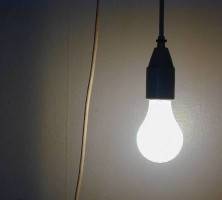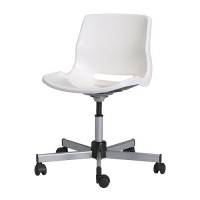March 24, 2014
Public sector purchasing doesn’t need this kind of lightbulb moment
 The latest of the weekly kickings reserved for the UK’s public sector purchasing community comes in the shape of a BBC Panorama documentary alleging that a range of frauds and cock-ups cost the National Health Service around £7 billion a year. The NHS denies these figures but there are clearly obvious and serious deficiencies in the way goods and services are procured across the public sector, as we have reported. Yet there is a flipside to such reports which tap in to (and sometimes pander to) a widespread scepticism of the way the public sector goes about its business. So we must first ask whether an equivalent private sector organisation with a budget of £109 billion a year would not also be open to a wide range of eye-wateringly expensive failures, inefficiencies and frauds. And secondly we must question whether the great British public, along with some businesses, are generally able to grasp the issues involved.
The latest of the weekly kickings reserved for the UK’s public sector purchasing community comes in the shape of a BBC Panorama documentary alleging that a range of frauds and cock-ups cost the National Health Service around £7 billion a year. The NHS denies these figures but there are clearly obvious and serious deficiencies in the way goods and services are procured across the public sector, as we have reported. Yet there is a flipside to such reports which tap in to (and sometimes pander to) a widespread scepticism of the way the public sector goes about its business. So we must first ask whether an equivalent private sector organisation with a budget of £109 billion a year would not also be open to a wide range of eye-wateringly expensive failures, inefficiencies and frauds. And secondly we must question whether the great British public, along with some businesses, are generally able to grasp the issues involved.
 The answer to the first question is that of course it would. Maybe not of the same type and scale but there is no question that the sums involved can engender mistakes and invite corruption. The public sector does not have a monopoly on cock-ups and crime.
The answer to the first question is that of course it would. Maybe not of the same type and scale but there is no question that the sums involved can engender mistakes and invite corruption. The public sector does not have a monopoly on cock-ups and crime.
The second point is more problematic. But maybe it’s best illustrated by another news story from today that claims that it costs the Metropolitan Police £26 a time to change a lightbulb. The Public Sector Lightbulb has become something of a meme, a recurrent symbol of the inefficiencies of public sector procurement. In 2011, it was the Ministry of Defence paying £22 for 65p lightbulbs. There are some valid criticisms to be made when it comes to this sort of thing but comparisons between an organisation procuring goods and services for an estate that takes up 1 percent of the UK’s landmass, as is the case with the MoD doesn’t bear comparison with a trip to B&Q.
Such criticisms are not limited to lightbulbs and vast central government procurement budgets, however. A little local difficulty in Sheffield makes the point. Last week, the local newspaper decided to drum up controversy by reporting indignantly that the council had spent £17,000 on office chairs for 230 staff. This, it proclaimed, was £73 per chair when it is possible to buy them from Ikea for £13.
This story is beyond stupid because of course £73 doesn’t buy you a particularly good chair, never mind £13. And the overall bill of £17,000 would be nothing compared to the levels of absenteeism and litigation that would ensue and still might if the £73 chairs are not up to the job. They’re certainly unlikely to be particularly durable or made from recycled materials so may even prove a false economy.
Yet beyond this ill-informed and idiotic rabble rousing, there is a point to be made about the undercurrent of mistrust when it comes to public sector purchasing decisions and the potential for this to lead organisations to make poor decisions. It seems obvious to me, as an old deskhead, that Sheffield Council has significantly underspent on its office furniture, yet it is still subject to a shoeing in the local rag, encouraged by bandwagonning politicians who should have enough inside knowledge to know better.
By all means we must question the serious flaws and frauds in public sector procurement, but we must also keep it real so that we are not compelling those responsible to make bad decisions in a misguided attempt to avoid pubic opprobrium. The answer is not to compare the way the public sector buys lightbulbs and chairs to how we might on a Sunday afternoon trip to Homebase or Staples, but to ask serious and informed questions about how to improve the way organisations can buy the best products and services in an efficient and cost-effective way.
………..Mark Eltringham














Spending on office furniture becomes a US political football - Workplace Insight
May 14, 2014 @ 8:49 am
[…] We’ve mentioned this before but when it comes to riling those who see public sector spending as inherently wasteful, nothing gets their backs up quite so much as the buying of lightbulbs and office furniture. You can come up with your own theories on why that might be (and I hope you do), but it’s been proved yet again as Fox News and other right wing commentators and media in the US have risen up in moral indignation at the news that the Inland Revenue Service has spent $96.5 million on office furniture and refurbishment during the last five years of the Obama administration. Now of course, this is just the touchstone for griping about government spending in general and Barack Obama in particular, but the US is clearly not alone in having an issue with office furniture purchases and you have to wonder exactly why this is. […]